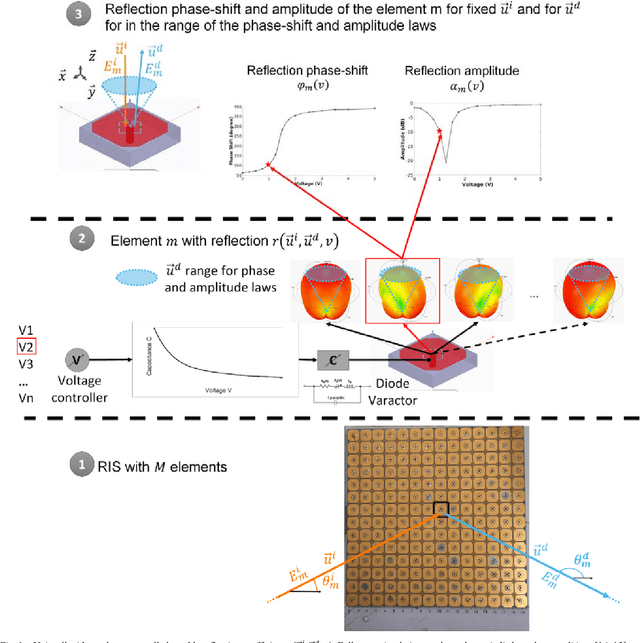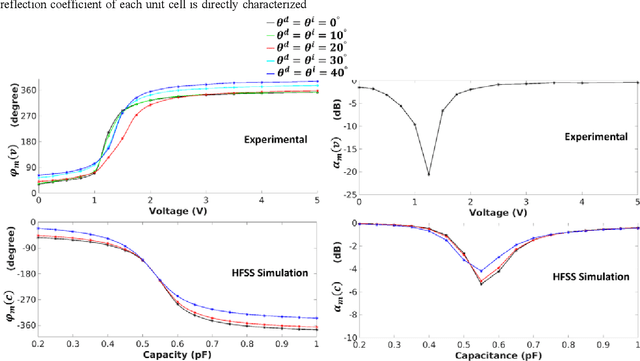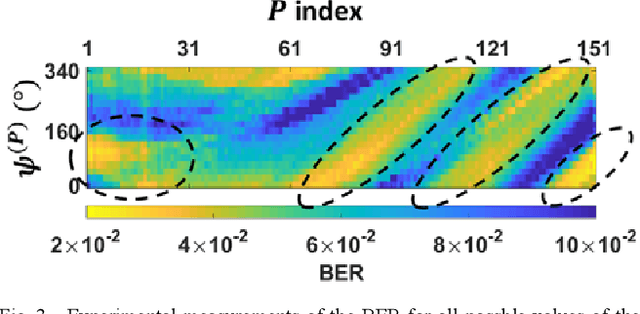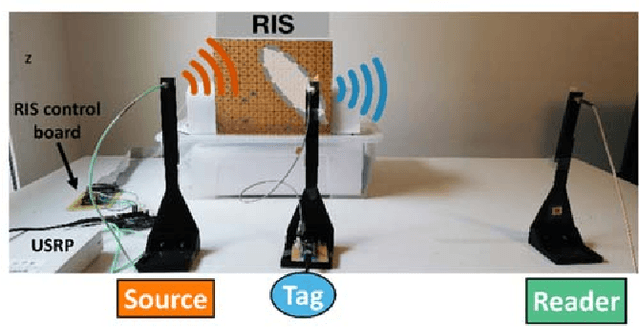Dinh-Thuy Phan Huy
A Prototype of Reconfigurable Intelligent Surface with Continuous Control of the Reflection Phase
May 25, 2021



Abstract:With the development of the next generation of mobile networks, new research challenges have emerged, and new technologies have been proposed to face them. On the one hand, the reconfigurable intelligent surface (RIS) technology is being investigated for partially controlling the wireless channels. The RIS is a promising technology for improving the signal quality by controlling the scattering of the electromagnetic waves in a nearly passive manner. On the other hand, ambient backscatter communications (AmBC) is another promising technology that is tailored for addressing the energy efficiency requirements for the Internet of Things (IoT). This technique enables low-power communications by backscattering ambient signals and, thus, reusing existing electromagnetic waves for communications. RIS technology can be utilized in the context of AmBC for improving the system performance. In this paper, we report a prototype of an RIS that offers the capability of controlling the phase shift of the reflected waves in a continuous manner, and we characterize its characteristics by using full-wave simulations and through experimental measurements. Specifically, we introduce a phase shift model for predicting the signal reflected by the RIS prototype. We apply the proposed model for optimizing an RISassisted AmBC system and we demonstrate that the use of an RIS can significantly improve the system performance.
 Add to Chrome
Add to Chrome Add to Firefox
Add to Firefox Add to Edge
Add to Edge